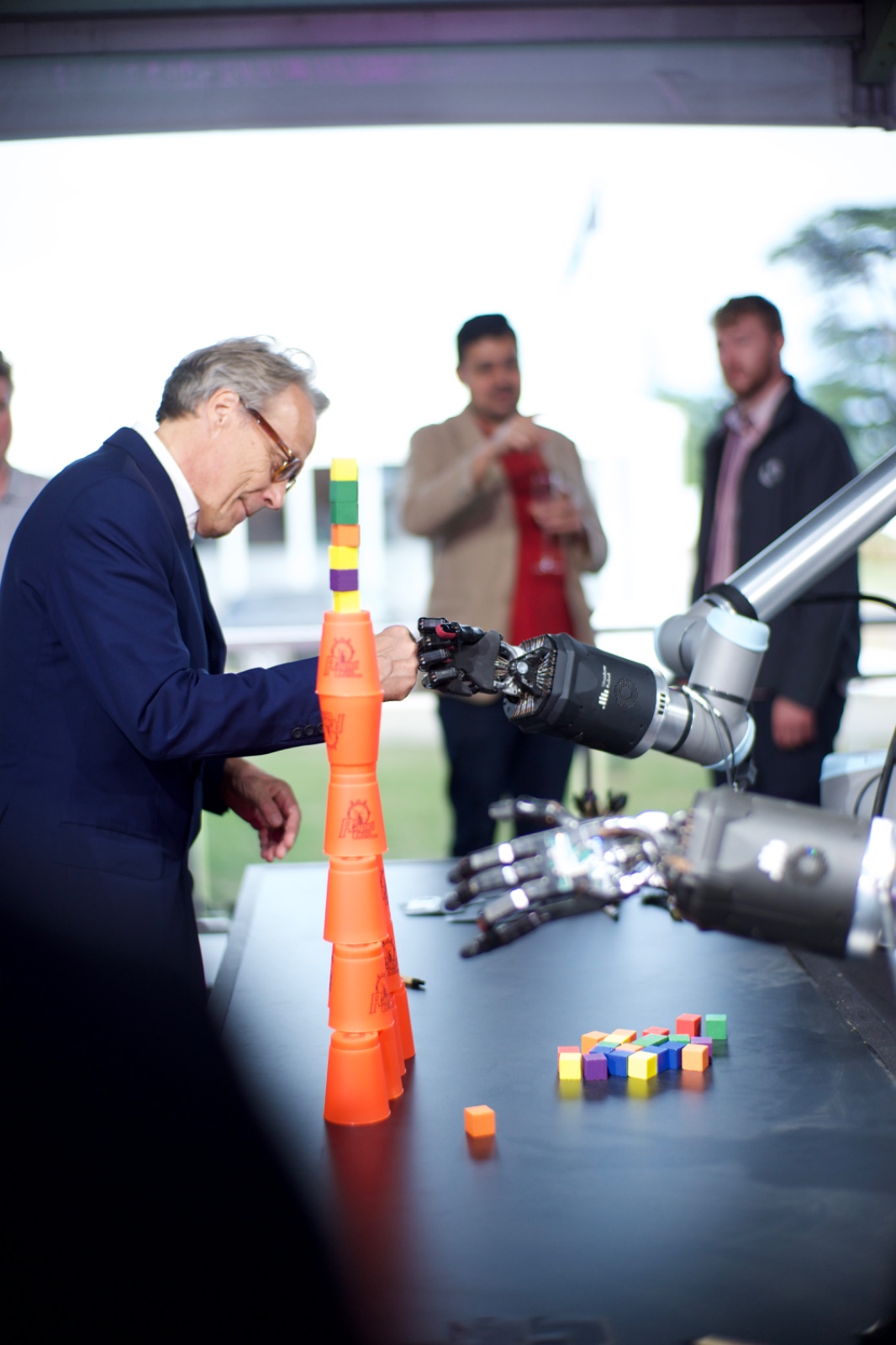Picture this: you're cruising down the highway, and your car effortlessly navigates traffic, anticipates potential hazards miles ahead, and adjusts your speed and route to ensure the smoothest ride — all without you lifting a finger. This isn’t the distant future, but the rapidly approaching present driven by the power of data and AI.
At the recent Goodwood Festival of Speed, a prestigious event that gathers automotive enthusiasts and industry leaders across the globe, we had the unique opportunity to delve into these transformative technologies and explore how data and AI are shaping the future of mobility.
The Goodwood Festival of Speed is more than an event; it's a nexus for automotive innovation and a celebration of motorsport, tech, and car culture. With over 100,000 attendees, it’s the largest event of its kind, showcasing everything from motorcycles to racing cars. It also features the exclusive Nucleus forum, where the executives from top automotive companies like Rolls Royce, Ferrari, and Lamborghini come together to discuss everything from autonomous vehicles (AVs) to electrification and supply chain challenges.
EDB was honored to be part of this dialogue and bring our expertise in data and AI to the forefront of the conversation.

The automotive data and AI revolution
The automotive industry is undergoing a dual revolution: a hyper-visible AI revolution and a less apparent, but equally crucial, data revolution.
While AI advancements like self-driving technology quickly capture public attention, the strategic use of vast amounts of data is quietly driving other efficiencies, such as predictive maintenance, supply chain optimization, and enhanced manufacturing processes, behind the scenes. According to McKinsey, this data-driven approach is expected to generate up to $750 billion in value by 2030.
This means that every CEO in the industry must now articulate not only how AI will be integrated into their products and operations, but also how they will harness the power of their massive volumes of data to optimize performance, enhance customer experiences, and stay competitive in a rapidly evolving market. In other words, mastering both AI strategy and data utilization is no longer optional, but a critical imperative for future success in the automotive industry. At EDB, we understand that the first step in that journey is effective data management.

Real-world applications and impact
Our discussions at Goodwood highlighted several examples of data and AI in action in the automotive sector.
- Autonomous vehicles: The journey towards fully autonomous vehicles relies most heavily on AI advancements and effective data utilization. These vehicles need to process and analyze vast amounts of data in real-time to navigate safely and efficiently. It’s been estimated that a fully autonomous vehicle will be capable of generating approximately four terabytes of data each day — that’s the data equivalent of almost 3,0000 people.
- Connected experiences: Modern vehicles are becoming hubs of data collecting information that enhances user experiences. That data supports everything from advanced navigation systems to predictive maintenance and personalized in-car entertainment. By 2030, connected cars powered by AI are expected to make up 95% of all vehicles on the road.
- Performance and efficiency: AI and data analytics can help optimize vehicle performance, improve fuel efficiency, and reduce emissions. For electric vehicles (EVs), AI helps in battery management by optimizing charging cycles and extending battery life. This data-driven approach is essential for meeting environmental regulations and achieving sustainability goals.
- Safety: AI-driven safety features include advanced driver-assistance systems (ADAS) like automatic emergency braking, lane-keeping assistance, and adaptive cruise control. These systems analyze data from sensors and cameras to detect potential hazards and take preventive actions to avoid crashes. According to the European Commission, these features could prevent up to 25,000 fatalities and avoid at least 140,000 serious injuries on European roads by 2038.
The implications are profound. For consumers, it means safer, more efficient, and personalized driving experiences. For automotive companies, it represents an unprecedented opportunity to innovate and lead in a highly competitive market. And for the broader economy, it signifies a shift towards smarter data-driven solutions that can address some of the most pressing challenges in transportation. By embracing data and AI, the automotive industry is not just enhancing vehicles — it's redefining the very future of how we move.

EDB's vision for the automotive data and AI landscape
EDB’s expertise in data and AI uniquely positions us to support the automotive industry's evolving needs. EDB Postgres AI, the first intelligent data platform for transactional, analytical, and AI workloads, is designed with built-in observability, advanced data management capabilities, and predictive analytics. It provides the robust, scalable, and secure foundation that automotive companies need to manage the massive volumes of data generated by modern vehicles.
As Mike Thomas, our Global Sales Leader at EDB, highlighted at Goodwood, the data generated by modern AVs is staggering, with "upwards of about 300GB of data per hour, resulting in terabytes of data every single day." Essentially, cars have become moving storage devices, using this data for everything from satellite navigation to sending feedback to manufacturers and service departments. Mike sums it up brilliantly: "There's a database inside the car now, right? So why shouldn't that be EDB Postgres, the best number one open source database in the world?"
We know that the advancements discussed at Goodwood are just the beginning. The future holds exciting possibilities as AI continues to evolve. Real-time generative applications, which can create on-demand apps through voice control, are just one example of the potential that lies ahead. These innovations, once considered science fiction, are now within reach, demonstrating the exponential pace of AI development.
As AI becomes more integrated into automotive design, manufacturing, and operation, it will redefine what vehicles can do. From designing engine components and optimizing body aesthetics to enhancing safety features and enabling autonomous control, the integration of data and AI will create safer, more efficient, and more connected vehicles.
At EDB, we are excited to be part of this revolution and to help our customers navigate the complexities of AI and data to achieve their goals. Stay connected for more insights and updates as we continue to explore the possibilities of data and AI in the automotive industry.

